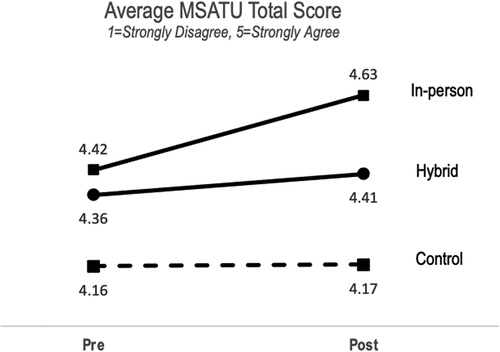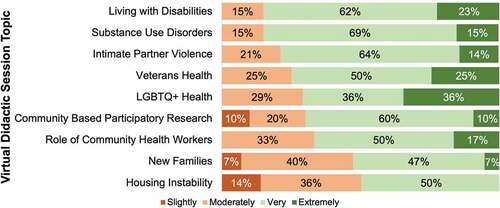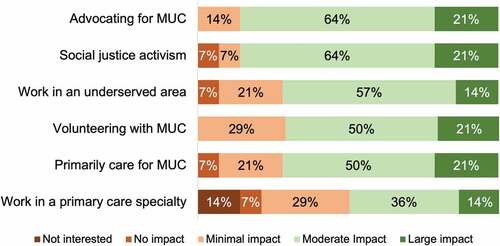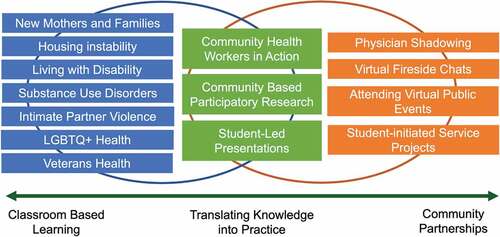Figures & data
Table 1. Comparison of in-person and hybrid program formats.
Table 2. Demographic information for study participants.a
Figure 2. Mean total medical student attitudes toward the underserved (MSATU) score for hybrid and in-person curriculum cohorts.

Table 3. Mean pre- and post-scores and Cronbach’s Alpha for MSATU total scale and subscale scores for in-person (n = 13) and Hybrid (n = 15) program formats.a
Figure 3. Degree of increase in knowledge of health challenges and barriers faced by medically underserved populations for each virtual didactic session.

Table 4. Impact of hybrid elective curriculum on student comfort and confidence in working with medically underserved communities.
Figure 4. Impact of hybrid service learning curriculum on future interest in working with medically underserved communities.

Table 5. Qualitative student comments on impact of hybrid service learning elective curriculum.

